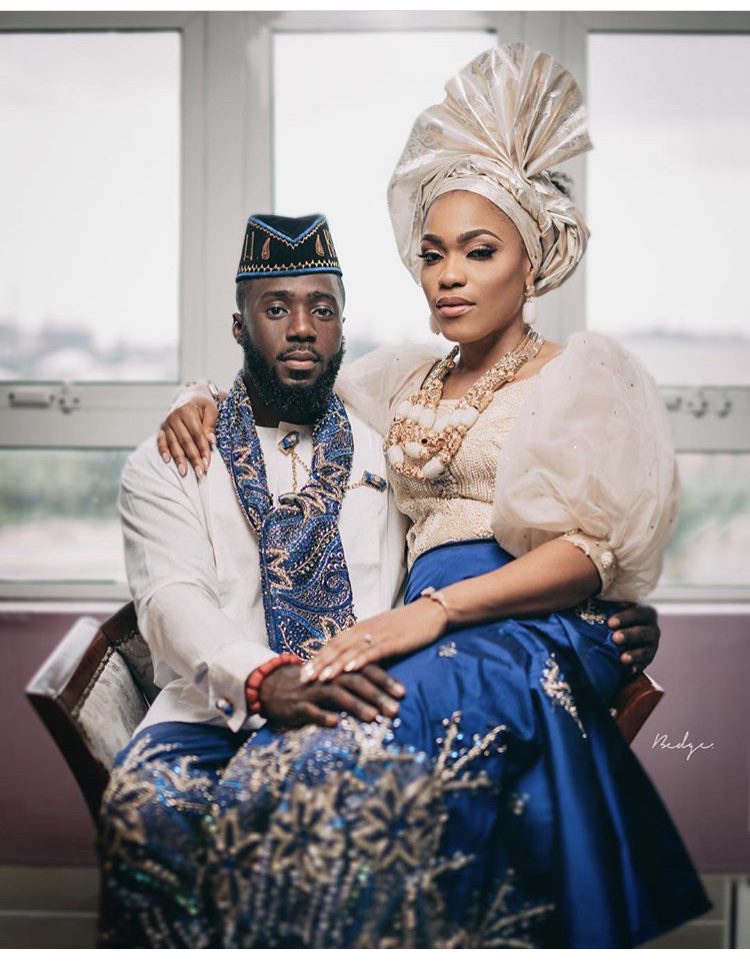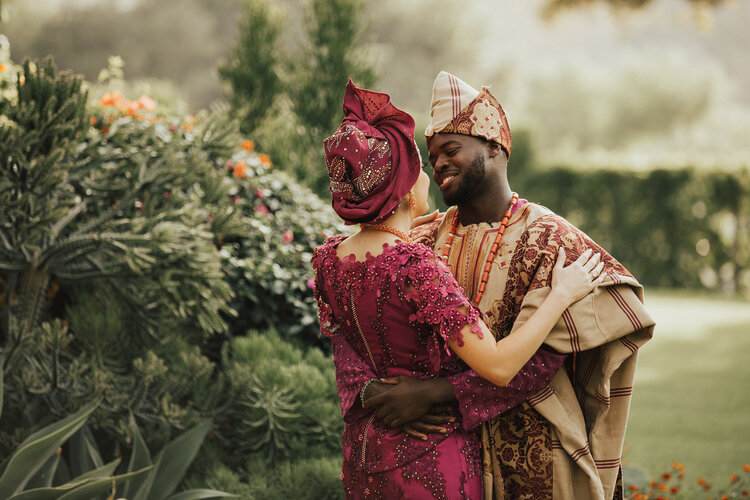Dear Beamers,
Greetings!
The perception of interracial or cross-cultural marriage varies among individuals. Some are fortunate to reside in multicultural societies, where they interact with people from diverse backgrounds, fostering a sense of familiarity with varied family structures. Conversely, others, entrenched in homogeneous communities, find it challenging to embrace such diversity, viewing it as a disruption to their established norms. Despite resistance, embracing cross-cultural marriage can significantly contribute to national unity. Therefore, this week’s newsletter aims to elucidate the role of cross-cultural marriages in promoting familial and national cohesion.
In recent decades, it’s undeniable that tribalism and ethnicity have impeded the progress and development of our nation. From the dawn of independence to the present, our collective challenge has been navigating tribal and ethnic dynamics in everyday life. Despite numerous calls to address Nigeria’s ethnic divides, various initiatives have failed to translate into tangible solutions, remaining largely theoretical. The establishment of a genuine democratic culture has proven elusive due to the pervasive influence of ethnicity and tribalism. Every Nigerian is acutely aware of the significance of tribalism in shaping national unity.
This awareness prevails as administrative divisions, such as states and local government areas, often align along tribal lines. Admission to educational institutions and the distribution of national resources are influenced by ethnic considerations. Tribalism has obstructed the effective governance of the nation, fueling riots and exacerbating divisions. It has solidified as a barrier to national unity, intensifying the divide among us. Reflecting on historical events like the May 1966 massacres in the North, the retaliatory counter-coup of July 29, 1966, the anti-Igbo violence in September 1966, and the Nigerian civil war from 1967 to 1970 further underscores the detrimental effects of ethnic tensions within the Nigerian nation.
Tribalism has evolved into a corrosive force within our systems, hindering the realization of a united and harmonious nation. Despite numerous initiatives such as the adoption of a national anthem, flag, NYSC, and the teaching of civic education aimed at fostering national unity, one less explored avenue is cross-cultural marriage. While it should not be imposed on unmarried individuals, society should refrain from impeding those who seek such unions.
Aderonke Fridaus believes that the foundation of brotherhood begins with cultural ties rather than religion or other potent unifying elements, which she believes could pose a significant long-term challenge for Nigeria. She elaborates:
“Brotherhood starts with culture before religion or other strong uniting factors, and this can be a serious problem for Nigeria, the most culturally diverse nation on the African continent. When people from different cultures believe they are more unique than others, it further divides us. This has hindered the growth of our nation in many sectors because people are biased in judgment, even when a member of their tribe is clearly wrong. We can’t claim to be united just because we’re all part of the same nation.”
While some individuals remain unaware of the potential inherent in cross-cultural marriage, certain relationships have evolved from dating to marriage despite societal barriers. This transition has been facilitated by various factors such as relocation, employment, entrepreneurship, among others.
As urbanization continues to increase and towns and cities become more cosmopolitan, private and public institutions attract individuals from diverse ethnic and religious backgrounds. Consequently, close interactions occur in workplaces, business settings, and other public spaces, often leading to cross-cultural marriages. These unions have thrived, prompting questions about why society instills fear in unmarried individuals, leading them to believe that intermarriage should be avoided.

Mudashir Timi, a married businessman, advocates for cross-cultural marriage as a means to unite diverse families and nurture a new generation. He states:
“Cross-cultural marriages bring different families together, uniting them as one because children are involved, leading to the raising of a new generation. Differences in culture and ethnicity can be beneficial in marriages. When managed well, they can create strong bonds in a loving relationship. Those married to people from different tribes often become more open, appreciative, and tolerant. They are not overly protective or strict with their children, teaching them to love everyone equally regardless of background.”
Egberike Jim further emphasizes that cross-cultural marriages should not only be promoted but also celebrated. In his words,
“There’s something about NYSC that makes me think it’s one of the best things the government has done to promote unity in our nation. The concept of posting people to underserved communities and different geopolitical zones outside their state of origin is a brilliant idea. One thing I really like is when two people from different tribes meet for the first time during NYSC, fall in love, and decide to get married during their service year. The NYSC board is even willing to support their wedding financially. This is nation-building from the grassroots, and I hope other sectors can adopt this creative concept from NYSC.”
It’s imperative to recognize marriage as the cornerstone of social institutions, playing a pivotal role in family formation, thus its universal significance. Conceived as the foundational step towards establishing a family, it is viewed as an organic, cohesive entity and the fundamental unit of society.
Within the Nigerian context, particularly among several tribes, marriage is perceived as a collective endeavor involving not only the individuals but also their respective families and communities. As a result, families that procreate through the institution of marriage are esteemed for their maturity and social standing.
Encouraging cross-cultural marriage poses challenges for society, particularly among young minds, and this awareness can be effectively instilled through comprehensive education in schools. While socialization begins within the family, its impact is profound within the school environment. Recognizing this, it becomes necessary to address misconceptions surrounding cross-cultural friendships, relationships, and marriages before they become ingrained in the minds of future generations who will shape the society of tomorrow.
An effective approach involves actively promoting cultural exchange in schools, where parents are encouraged to visit frequently to share their traditions and practices. Special ceremonies, such as cultural day, should be observed annually to provide opportunities for students and parents to showcase their cultural heritage through traditional attire, performances, and shared cuisine. Through such events, the amalgamation of diverse parental and student backgrounds fosters an appreciation for the uniqueness and similarities of various cultures alongside our own. Experiencing this diversity from an early age shapes our national perspective, fostering the perception of the world as one interconnected family.
Cross-cultural marriage serves as a catalyst for strengthening our connections to our respective cultures. This often involves tasks such as undertaking language classes, which represent a shared commitment to enhancing our proficiency in our native languages. Ultimately, this serves as a motivating force, encouraging us to embrace our heritage more deeply and share it authentically with each other and those in our community.

Cross-cultural marriage, with its inherent ability to promote fellowship and mutual understanding, stands as a potent manifestation of the unity of humanity. It reinforces the acknowledgment of diverse traditions within a singular national family and extends its influence outward, promoting greater circles of freedom, peace, love, and unity in our interactions with others.
“Inter-tribal marriage encourages growth and social interaction while reducing tribal and ethnic conflicts, which is one of the problems facing the nation. It’s an approach that promotes brotherly love among different tribes. This supports unity among people and serves as a tool for national integration, creating awareness of a common identity among citizens. Despite our different backgrounds, languages, and religions, we recognize that we are all one. This kind of integration is important for building a strong and prosperous nation.” Says Ajani Tomisin
It’s crucial to recognize that the diversity of tribes and religions underscores our interconnectedness as the fruits of one tree and the leaves of one branch. The amalgamation of different cultures exemplifies the potent role of intermarriage in fostering unity and eradicating the roots of prejudice. Intimate connections between families not only challenge societal stereotypes and preconceptions about various groups but also present a unique opportunity to embrace the unfamiliar. These relationships go beyond mere acquaintance, serving as a catalyst for dismantling personal prejudices deeply embedded within individuals.




